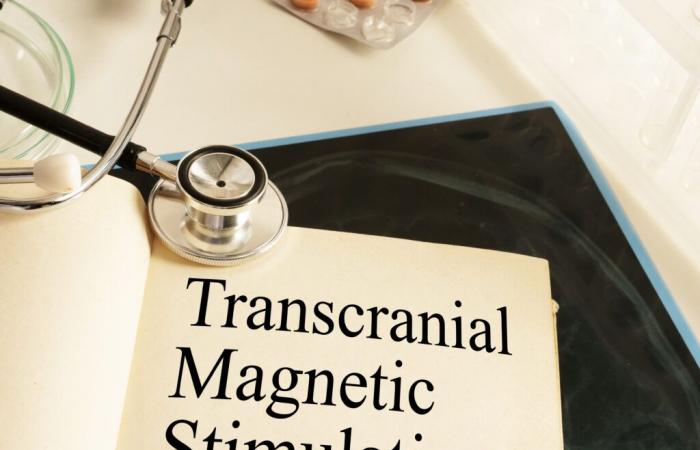Sleep problems are among the main health problems associated with our current lifestyles (screens, sedentary lifestyle, blue light and nighttime, etc.). The authors point out that insomnia is thus caused, at least in part, by excessive excitement of the brain and body, excitement often associated with worries and negative and exciting thoughts or “rumination”.
Brain imaging has shown that these inwardly focused thoughts tend to activate the default mode network, a central system in the brain that processes internal thoughts and emotions and becomes active during rest or introspection. .
A brief 40-second magnetic stimulation helps you fall asleep better
The team is conducting a preliminary study aimed at calming the default mode network before bed using a handheld device that stimulates brain cells via magnetic fields. This device, held against the scalp for less than a minute, therefore uses transcranial magnetic stimulation to target specific areas of the brain with continuous theta pulse stimulation, which delivers rapid, repetitive magnetic pulses to inhibit brain activity default mode network.
“Many people with insomnia describe their inability to “turn off” their thoughts when trying to fall asleep. This internal dialogue or rumination is driven by the activation of the default mode network, which perpetuates a cycle of agitation. Our first results suggest that by disrupting this brain network with a brief 40-second stimulation, it is possible to promote falling asleep.”
The study who tested this device revealed that participants showed improvements in sleep after a session of continuous theta pulse stimulation on an area of the default mode network.
Wider applications: If this new approach is the first to stimulate a network in the brain that had never been explored for this purpose, it is an illustration of the more general use of continuous theta pulse stimulation for sleep disorders, depression and other mental health or cognitive disorders.
New research is already planned over 3 years to examine, with 120 participants, the long-term effects of a longer-term treatment, i.e. 10 repeated sessions of continuous stimulation by theta pulses over a period of 2 weeks.
“By deciphering the response of different areas of the brain to continuous theta pulse stimulation, we will be able to refine this approach and optimize its effectiveness.”
Health






